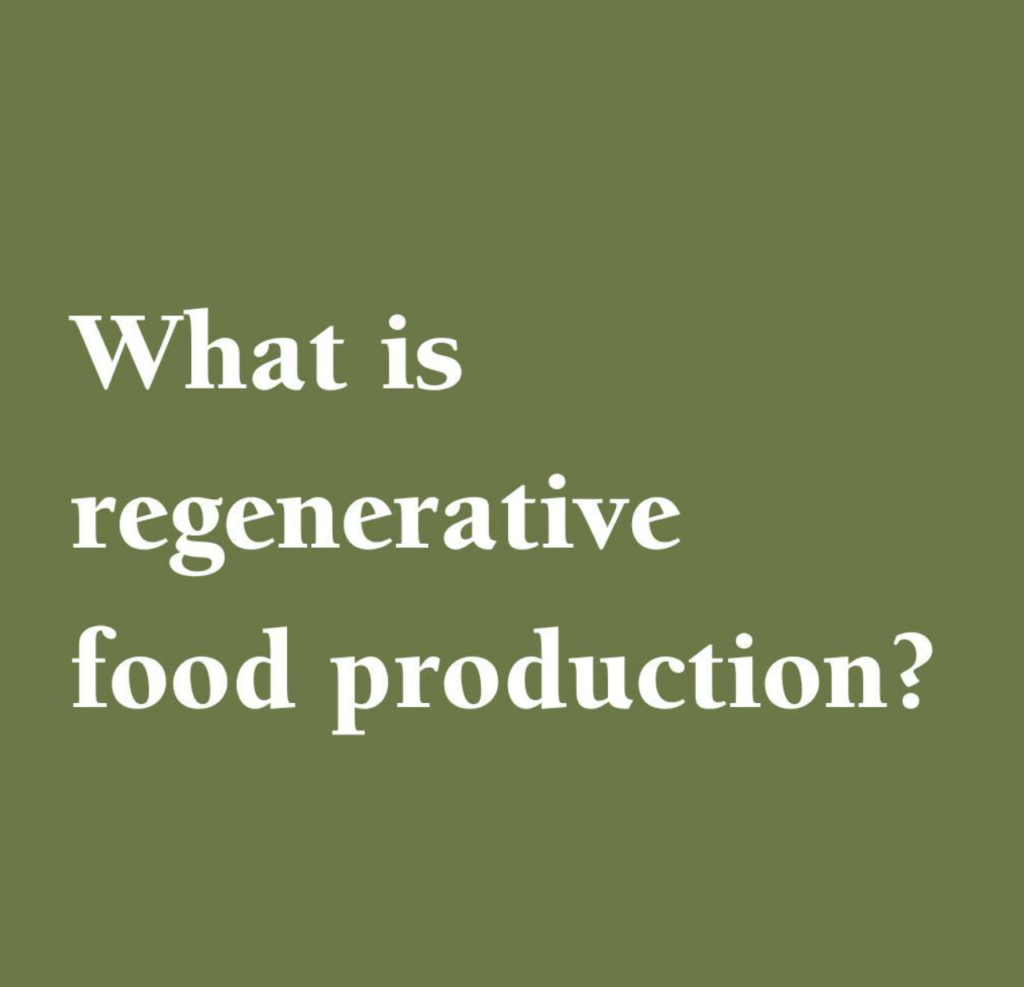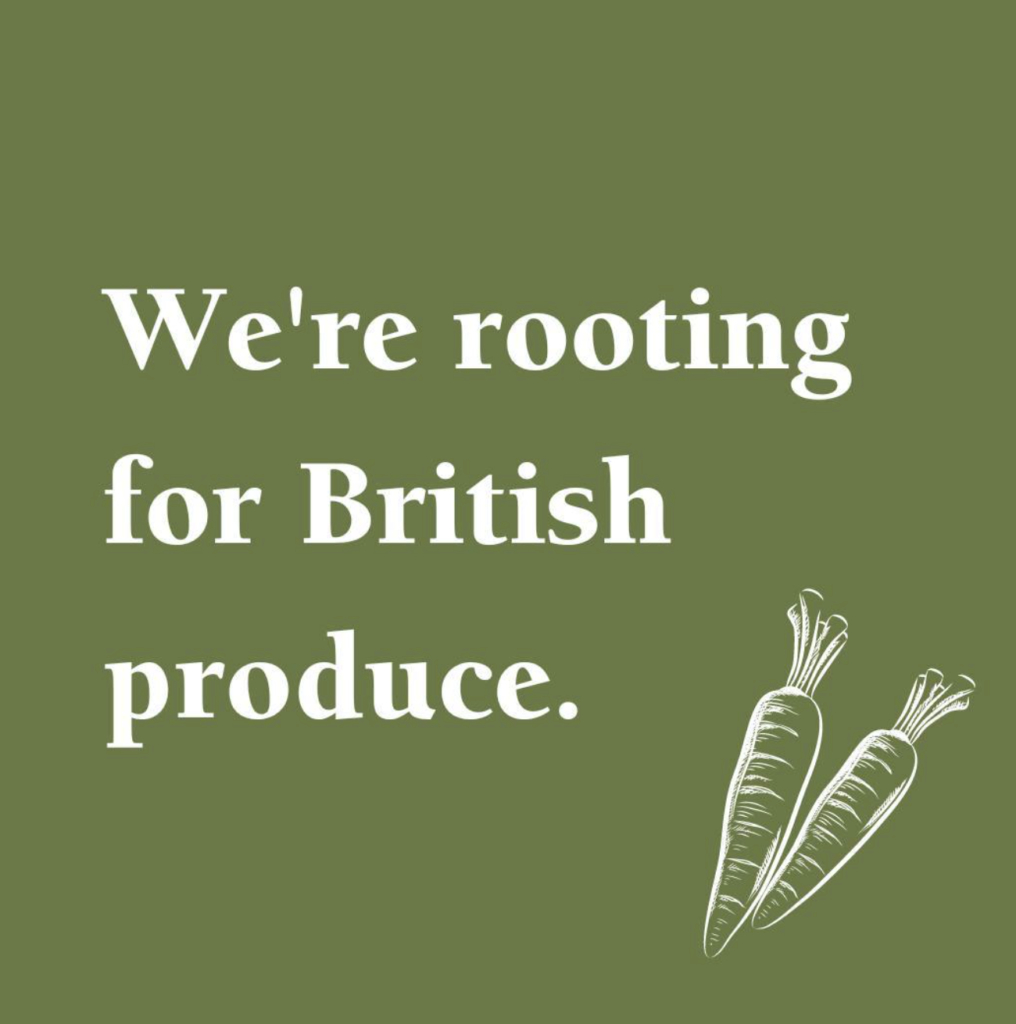The term regenerative agriculture was first coined in the early 1980s, but after a period in the wilderness, the approach to food and farming systems that focuses on conservation and rehabilitation has once again entered the everyday lexicon. At New Covent Garden Market, the companies in the Thorogoods Group – which has been growing and selling quality British fresh produce since 1922 – are looking to work with responsible growers who share their principles. Marketing Manager Jo Thorogood explains the thinking behind the principles

Thorogoods has spent a long time honing its skills at growing and sourcing sustainable fresh produce for its customers in the independent retail, catering and hospitality sectors. In fact, it is one of the few UK wholesalers that can still claim to keep its fingers green!
While regenerative farming may seem a relatively new concept, for some growers it has been part of their good practice for years. That’s not always the case of course. “Nature is inherently regenerative; living systems exist where everything is a resource for something else,” says Jo. “However, how food is produced does not always align with the cyclical patterns of nature. Instead, the food economy has moved towards a one-directional system of using finite resources disposed of when finished with.”
The process, she argues, can pollute and degrade natural systems, thus negatively driving issues such as climate change and biodiversity loss. “Regenerative food production can reduce emissions by using fewer synthetic inputs and improve soil health by restoring organic matter and biodiversity levels. In addition, it can make harvests more reliable and resilient with healthier soils that are more likely to withstand the effects of climate change,” Jo says.
She lists a number of examples of regenerative farming practices:
· Minimising soil disturbance
· Using cover crops and rotating the crop types
· Increasing crop diversity through mixed cropping and intercropping
· Integrating trees
· Rotational grazing of livestock
· Using organic matter for inputs
“Our growers are some of the leading exponents of responsible agriculture within the UK,” Jo adds. “We are working with our growers and customers to improve education on regenerative agricultural practices and their benefits to the UK horticultural industry in providing “good food available for all” for many generations.”

One of the regenerative growers supplying Thorogoods is Laurence J Betts, which also happens to be one of the wholesaler’s longest-standing suppliers. “We’ve been working together since the 1980s when they came to us after buying our cabbages,” says Jo. “They are a historic family business based near West Malling, Kent, producing a selection of whole head, babyleaf and multi leaf salads and cereals. The farm is an innovative, focused and committed food production system, supplying its loyal customers with high-quality, fresh salad products.”
Nick Ottewell, Production & Commercial Director of LJ Betts, says the business is invested in the importance of regenerative food production. “We believe in regenerative and sustainable farming; the more organic matter (carbon) we have in our soils, the more resilient we are to the extreme weather events happening more frequently.”
Companies and people throughout the fresh produce supply chain are responsible for maintaining and protecting the environment, adds Nick. “Farmers growing and supplying fresh produce could be bolder with their regenerative farming practices.”
However, adopting practices such as reducing the use of chemicals will increase the likelihood of pest damage. Therefore, the progression of regenerative farming could be influenced by consumers tolerating slightly "more rustic" produce. Nick says: “The demand for perfect food is a barrier to sympathetic farming.”
Within the Thorogoods Group is foodservice supplier Rushton’s the chefs’ greengrocer and one of its customers Hawksmoor says it supports British farming for a few simple reasons. “It is a big part of the reason that the countryside is as beautiful as it is, it generally has very high standards of product and welfare, and in particular the farmers we work with are all passionate about their animals, crops and way of life, but perhaps even more so about the land,” says Will Beckett, Founder of the popular restaurant chain.
“Regenerative farming is a simple idea … that farming should put as much into the land as it takes from it, after so many years where the reverse has been true. Farmers not only feed us, they are custodians of the land for future generations, but they only achieve that with support from businesses and consumers, and we’re really proud to work with them,” adds Will.